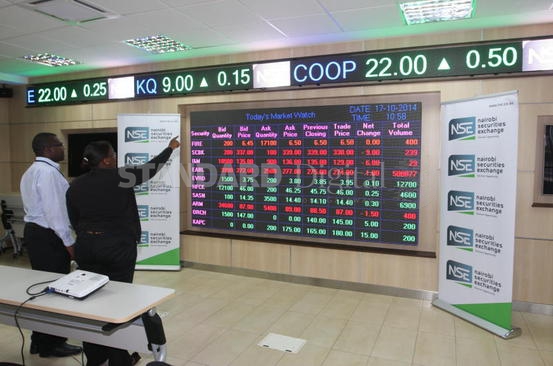×
The Standard e-Paper
Kenya’s Boldest Voice
Investors at the Nairobi bourse have lost another Sh60 billion in the last one month, extending the losses to Sh530 billion since prices of shares started falling seven months ago.

Latest data from the Nairobi Securities Exchange (NSE), show that market capitalisation—the market value of all outstanding shares -- has shrunk by 20 per cent from Sh2.43 trillion in March to Sh1.90 trillion by the end of Friday.